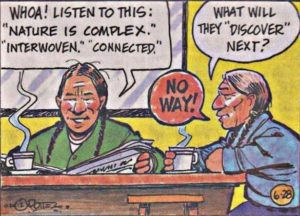Table of Contents
Unit 1: Cultivating Spirit
Unit 2: Who Are You?
Unit 3: Racial Justice
Unit 4: Economic Justice
Unit 5: Lessons & Intentions
Unit 6: Get Intersectional!
Unit 7: The Journey Home
Unit 8: Keeping the Flame Alive
Recent Young Adult Blog Posts
Statement supporting student activism on Gaza
The UU College of Social Justice, in collaboration with Side with Love and the Youth and Emerging Adult team of the Lifespan Faith Engagement office joins in solidarity with Unitarian Universalist young adults and students across the globe who are protesting the...

“There is no such thing as a single-issue struggle because we do not live single-issue lives.” ~ Audre Lorde
“Intersectionality” is a long word that points to a simple truth: everything is interwoven. The term was first used in its political context to highlight the linked oppressions faced by women of color, as they confronted the dual challenges of sexism and racism. In the realm of social movements for justice, the truth of interconnection helps us see the ways that intersecting systems perpetuate injustice – and therefore helps us devise strategies that take account of these complexities. As we begin to connect the dots – between pollution and racism, for instance, or sexism and poverty – we are better able to work together across our differences, and build movements that hold everyone’s interests more fully in mind.
WATCH/READ: Intersectional Organizing
Next, read this short article unpacking some of the implications of intersectionality for social change organizing.
REFLECT: Thinking Intersectionally
Are there intersections of oppression within the primary community served by your internship organization? Is an understanding of these intersections apparent in the organizing approach you see being used?
Where do you see intersectionality influencing your own life and identity?
SHARE: Post on Facebook
ADDITIONAL RESOURCES
Get Intersectional! (Or Why Your Movement Can’t Go It Alone) – Another great article on how intersectionality went from a theory about oppression to a movement strategy.
A Primer on Intersectionality – A basic overview of the concept of intersectionality from the African American Policy Forum, compiled by Kimberle Crenshaw (who coined the term). Also includes a speech she gave after Hurricane Katrina.
Audre Lorde – Age, Race, Class, Sex – A classic text that takes an intersectional approach to feminism. If you like this piece, Audre Lorde’s book “Sister, Outsider” has many powerful essays and speeches like this one.

